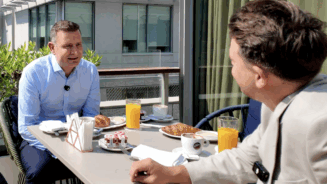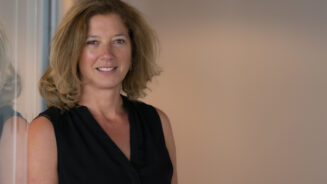Markets have been unsure how to interpret Donald Trump’s energetic start to his term in office. It is hard to say whether ‘dark Donald’ or ‘Trump-lite’ will prevail.
For his part, Alan McIntosh, chief investment strategist at Quilter Cheviot, is taking a distinctly ‘glass half-full’ approach, believing that Trump will ultimately prove positive for markets, though he is also keeping a little gold just in case.
He says: “We are positive about the world, in marked contrast to 12 months ago. This means we are overweight risk assets. There are better prospects in the US and we are quite positive on the Trump effect. He has bold forecasts for tax cuts and infrastructure spending. The US economy was already in good shape and there will be fiscal stimulus.”
McIntosh admits the US market is not cheap but he believes it is supported by improving numbers: “Once companies have some stability, they can start investing again. The corporation tax cut is also likely to see companies investing domestically rather than sending money abroad. We believe Trump is a businessman and, as such, will have an edge and be able to get things done.”
Known knowns
This is in marked contrast to the UK, where McIntosh believes “grandstanding” may have taken priority over doing deals on Brexit. He is favouring a higher weighting in international equities for sterling-based investors, given there may still be some downside in sterling and the UK economy could stall as Brexit negotiations progress.
The group had been well-prepared for the Brexit vote, though McIntosh admits he did not see it coming: “We didn’t predict a leave vote but we saw it as a potential risk and were already overweight overseas assets, particularly dollar-denominated assets. This helped our portfolios enormously, starting in July. Since then, we have not felt inclined to change that view.”
He also remains sanguine on some of the political challenges facing Europe in 2017. “Last year no one had predicted a leave vote or Trump. Everyone has worried about the consequences but these have not been big issues for markets. If Marine Le Pen gets elected in France, it would not be a great outcome but would anyone really be shocked by it? The real risk is something very unexpected – a war, an economic shock – rather than the things we know are unfolding.”
Golden ratio
With this in mind, McIntosh is retaining a weighting in gold across the group’s portfolios as a hedge against anything going “horribly wrong”. It also allows him to take a little more risk elsewhere. In the balanced portfolios this gold weighting amounts to around 5%.
Holding gold also helps with diversification. He is aware a straightforward split between bonds and equities no longer provides adequate diversification and that investors need to take a broader view. He is not keen on either commercial property or some of the alternatives area, believing hedge funds have in many cases not delivered as expected.
“The risk/return profile for hedge funds has not been good. With all things, we want to find the right instrument to get the outcome our clients need. Last year was pretty good for equities. Hedge funds have been quite directional and they should have done a lot better. They have been wrong-footed by Brexit and Trump. Also, the really good hedge funds are closed.”
As a supporter of the deflation trade, McIntosh is also pro-cyclical in many of his equity holdings. He says: “US growth is also good for the rest of the world. The reflation trade has seen investors moving out of defensive areas into more growth sensitive areas. This is a bit of a consensus view but we believe it has further to go.
“If you step back from what is happening on Capitol Hill, the global economy is a lot better than it was a year ago. We believe that it will take a lot to derail the global economy. We are seeing positive earnings and forecasts are improving.”
As a result, McIntosh has taken positions in financials and resources. He saw commodities had dropped too far in mid-2016 and there was a chance Opec would act to get the price higher. Central banks started to realise negative interest rates had gone too far and it was clear that policy would start to reverse, which was good for financials.




